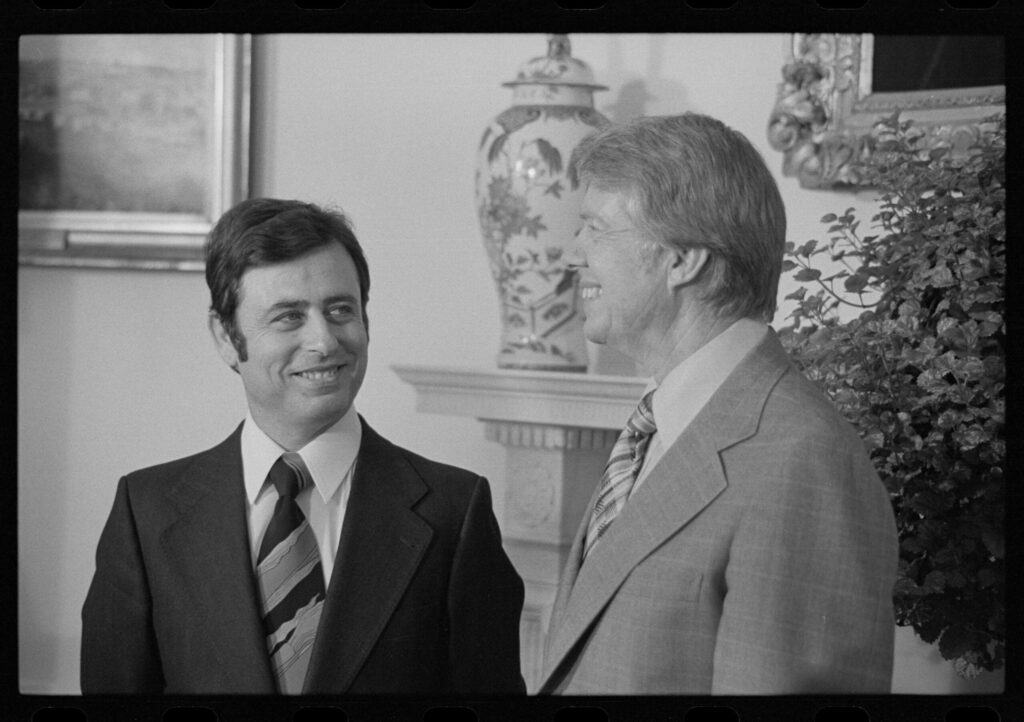In two meetings at the White House, the Syrian foreign minister insists on the PLO's presence at a regional peace conference and wins U.S. support for some kind of Palestinian "entity."
[1] Source: Carter Library, National Security Affairs, Staff Material, Middle East File, Subject File, Box 2, Arab-Israeli Peace Settlement 1977: Volume I [II]. Top Secret. The meeting took place in the White House Cabinet Room. Brackets are in the original.
[2] According to the President’s Daily Diary, Carter met with Khaddam from 10:32 to 11:35 a.m. (Carter Library, Presidential Materials, President’s Daily Diary) No memorandum of conversation of this discussion has been found.
[3] See footnote 4, Document 101.
[4] See footnote 2, Document 32.
[5] Source: Carter Library, National Security Affairs, Staff Material, Middle East File, Trips/Visits File, Box 107, 9/19/77-10/25/77 Vance Meetings with Middle East Foreign Ministers: 9-10/77. Secret; Nodis. Drafted by Korn on October 4. The meeting took place at the Department of State in the Madison Room.
[6] Abraham Beame was Mayor of New York City.
[7] A reference to U.N. General Assembly Resolution 3210 adopted on October 14, 1974.
[8] Presumably a reference to the working paper described in footnote 2, Document 118.
[9] See Document 100.
[10] Telegram 226023 to Beirut, September 20, reported that the United States and Khoury signed a $25 million FMS credit agreement on September 19. (National Archives, RG 59, Central Foreign Policy File, D770342–0438).









